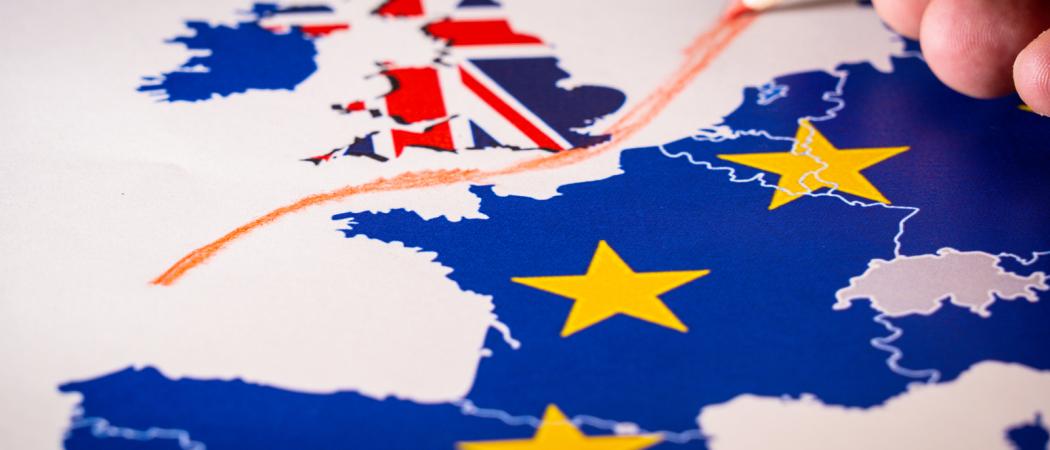One consequence of Brexit closed a financing source to UK start-ups on 1 Feb. – but access could re-open if a UK and EU trade deal includes Horizon Europe participation

Here’s one little-noted, immediate consequence of Brexit: UK companies have lost access to new equity investments from the EU’s new small-company funding programme, the European Innovation Council (EIC), as of 1 February.
While UK companies can still apply for EIC grants until 31 December, they cannot ask for equity investment from the EU, sources in the European Commission confirmed.
The option of equity funding for innovative companies under the EIC Accelerator, part of the EU’s big Horizon 2020 research programme, is backed with money by the European Investment Bank (EIB). But the terms of the withdrawal agreement between the UK and the EU mean that the EIB can no longer make new financial investments in UK companies.
To those deeply involved in the UK-EU divorce talks, this development would come as no surprise – but in the crush of Brexit news, this particular funding issue has gotten little public attention, and the UK government has yet to spell out how it will handle it.
It’s in the fine print
The UK’s withdrawal from the EU automatically ended its membership in the EIB, together with its 16.11 per cent subscribed capital in the bank. “Neither the United Kingdom nor projects located in the United Kingdom shall be eligible for new financial operations from the EIB group that are reserved for [EU] member states,” the withdrawal agreement says.
The cut-off affects only equity applications after Brexit Day, last 31 January. By contrast, UK companies that had applied for EIC equity funding by that date are still eligible to receive the funding to complete the projects, even if they end after 31 December, when the Brexit transition period comes to an end.
The UK could regain access to EIC equity funding under Horizon Europe, the EU’s upcoming research and innovation programme to start next January, if it reaches an agreement with the EU to participate as an associated country. Companies based in other non-EU countries with associated status, such as Israel, Norway and Switzerland, can still apply for EIC equity funding.
The post-Brexit changes to EIB funding rules also affect UK companies seeking funding from the European Fund for Strategic Investments (EFSI) and European Fund for Sustainable Development (EFSD). In addition, UK companies can no longer apply for the EIB’s InnovFin programme, a funding scheme meant to boost innovative companies from EU member states and associated countries.
Sources in the UK government say companies could regain access to EIC equity funding and the EIB’s other innovation funding instruments, if the relationship between the EIB and the UK will be part of the wider bilateral trade negotiations this year.
The UK government has promised to step in and make up for the funding gaps caused by Brexit, but few specifics have been made public yet. According to the same sources, the UK government is still working on “finalising” a proposal.
What is the EIC?
The EIC is largely based on the idea of a “one-stop shop for innovators” a term coined by former Research Commissioner Carlos Moedas, who wanted companies to be able to apply for funding that allows them to develop and scale up high-risk innovations. The fully fledged EIC is expected to be launched in 2021.
Under the EIC Accelerator programme, companies can access grant funding of up to €2.5 million, covering no more than 70 per cent of costs, and gain access to mentoring and venture capitalists. Companies can also opt for equity investments of up to €15 million backed by the EIB.
In October 2019, the Commission announced the results of the latest round of funding for the EIC accelerator programme. A total of 1,852 applications were accepted in the programme, requesting a total of €5.2 billion in financial support. Of that group, almost 500 companies requested €2.8 billion in both grant and equity financing totalling. On average, equity represents two thirds of the requested amount per project. Companies from Spain, Italy, Israel, Germany and France submitted the largest number of proposals. For the UK, 12 companies were awarded about €7.3 million.
EIC money for the green deal
The Commission will raise the EIC budget in March to support more companies, ahead of the launch of a fully-fledged programme under Horizon Europe in January 2021.
Companies have until 19 May to apply for a special EIC Accelerator call for start-ups working on projects that overlap with EU plans for a new “green deal”, a policy effort by the Commission to make Europe the first climate neutral continent by 2050.
The EU also wants to provide additional opportunities for companies with women CEOs by ensuring 25 per cent of all finalists in the EIC accelerator led by women.





 A unique international forum for public research organisations and companies to connect their external engagement with strategic interests around their R&D system.
A unique international forum for public research organisations and companies to connect their external engagement with strategic interests around their R&D system.